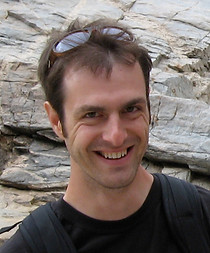Quantitative Aquatic Ecosystem Laboratory
Staff and Students

Professor Rebecca Lester
I am an ecologist with experience in freshwater, estuarine and marine systems. I have wide-ranging research interests, but am primarily focused on the management of aquatic ecosystems and in achieving good ecological outcomes in systems that involve multiple uses and commercial industries. I combine my expertise in ecology with a solid background in hydrology and erosional processes and actively collaborate across biological and other disciplines. I have a broad range of analytical and modelling skills and specialise in combining data about a range of physical and biological processes into a broader understanding at an ecosystem scale. My current research includes modelling plausible future trajectories of condition for key biota, the impact of environmental flows on food webs, identifying species coexistence mechanisms in stream biota and using fractals to explicitly describe spatial and temporal heterogeneity of stream assemblages.

Dr Ty Matthews
My research focuses on the importance of river flow regimes for aquatic biota and spans across freshwater, estuarine and marine ecosystems. This work began by describing the influence of high (i.e. flooding) and low flows (induced by drought) on the population dynamics of estuarine, benthic invertebrates. This then expanded into freshwater ecosystems, and has involved testing the influence of varying flow regimes on benthic algae, macroinvertebrates and fish. These tests have involved comparisons of plant and animal assemblages in unregulated and regulated streams, together with perennial and intermittent streams. I have supervised PhD research that assessed the importance of estuarine outflow on the productivity of near-shore coastal environments. Another major theme of my research includes assessing the importance of drought refuges for the persistence of biota in aquatic ecosystems. These projects test important ecological theory and are also strongly applied, so this research is providing new ecological knowledge and guiding environmental management.

Dr Galen Holt
I study the large-scale outcomes of interactions between environmental conditions and life history. Specifically, I am interested in how species’ responses to and dispersal through variable environmental conditions affect local interactions, and how those interactions scale up to affect the dynamics of ecological communities. I study these issues using a combination of empirical studies, community dynamics models and coexistence theory. My recent projects include theoretical investigations of the maintenance of diversity at regional scales in stream networks, and modelling studies to identify targets for conservation and restoration actions dependent on connectivity patterns, environmental conditions, and invasive species. I am excited to extend my research as a member of QAEL, where I will collaborate on projects to connect coexistence theory to the real world in a community of aquatic insects and develop modelling approaches connecting environmental conditions and biological responses to management actions.

Dr Georgia Dwyer
I joined the team at QAEL as a senior research assistant in 2019. My prior research has centred on improving our understanding of the behavioural and physiological responses of freshwater fishes to environmental disturbances, such as hypoxia (low oxygen concentrations) and alterations in nutrient availability. This research has given me opportunities to work with researchers from a wide range of disciplines including fish and macroinvertebrate ecologists, statisticians, chemists, and geneticists. This has allowed me to gain skills in these areas and expand the scope of my research.

David Dodemaide
I am a PhD student and Research Assistant within QAEL. My current research project is looking into the environmental variables that influence the macroinvertebrate assemblages within Lakes Alexandrina and Albert in South Australia, then modelling how these assemblages may change as the current condition of these ecosystems changes.

Mariah Sampson
I joined QAEL in 2021 as a PhD candidate. My project looks at evaluating riparian buffer zones in temperate streams, and my research questions seek to contribute an understanding of what influences the efficacy of riparian restoration in Australian rivers. I am broadly passionate about the intersection and balance of human and environmental water needs.

Sarah Taig
I am an honours student within QAEL. My project is looking at determining the effects of temperature on infectious disease in aquatic insects using caddisflies. I will also be looking at how temperature determines hatching rates and maturity of caddisflies. As part of my research I have had the opportunity to complete both fieldwork in Marysville, Vic and lab work in which I have gained many skills and increased my knowledge.

I joined the QAEL team as a PhD student in 2024. My research focuses on landscape rehydration as part of the project “Plugging Leaky Landscapes: Turnip Creek Catchment Rehydration.” In this project, I am investigating the impact of rehydration interventions on catchment water retention. My work involves developing a multi-criteria decision-making framework to identify the most suitable rehydration strategies for different catchment conditions. I also use predictive modelling to assess how interventions such as contour ripping, enhancing vegetative cover, and implementing rotational grazing can improve water yield, particularly by reducing overland flow and enhancing baseflow. In parallel, I am leading a field experiment where these interventions have been applied, enabling us to monitor their real-world effects on soil moisture, soil properties, and pasture health. Through this integrated approach, I aim to provide practical, evidence-based, and scalable solutions for restoring degraded catchments and supporting long-term ecosystem resilience.